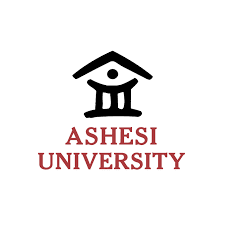The Code4All Initiative, Ashesi University (Ghana)
 The Code4All Initiative received an honorable mention for the 2022 MacJannet Prize. In 2019, six students from three African countries came together at Ashesi University to address a common problem that students from rural and underserved backgrounds face – the lack of access to Science, Technology, Engineering and Mathematics (STEM) education. Having come from underserved communities in their respective countries, these six students had little to no knowledge of technology and digital skills before their admission to Ashesi University. Their goal was to develop a project to help bridge the digital divide between students from underserved communities, especially for the girls, who are the most affected. This led to the beginning of the Code4All Initiative.
The Code4All Initiative received an honorable mention for the 2022 MacJannet Prize. In 2019, six students from three African countries came together at Ashesi University to address a common problem that students from rural and underserved backgrounds face – the lack of access to Science, Technology, Engineering and Mathematics (STEM) education. Having come from underserved communities in their respective countries, these six students had little to no knowledge of technology and digital skills before their admission to Ashesi University. Their goal was to develop a project to help bridge the digital divide between students from underserved communities, especially for the girls, who are the most affected. This led to the beginning of the Code4All Initiative.
The Code4All Initiative provides mentorship and teaches basic computer skills and problem-solving through programming and critical thinking to students from rural and underrepresented backgrounds. The project is currently led by the six co-founders from three African countries (Nigeria, Tanzania and Zimbabwe) and supported by Ashesi University and over 25 student volunteers from Ashesi. It operates in two schools within the Akuapem District of Ghana.
Prior to the pandemic in 2020, the project transported the students twice a week from their communities to Ashesi University in order to use the ICT laboratories on campus. This was necessary because these students had no computers in their high schools. Fast-forward to January 2022; things have changed. Instead of bringing the students to campus, volunteers from Ashesi University go to the schools. Thanks to a generous grant from the Ford Foundation in partnership with Ashesi University, the project purchased five computers, a router, a projector, and an internet subscription to run smoothly in the schools. In addition, students and volunteers receive one meal on each day of the session.
The project’s goal is simple: to enhance digital literacy among students from poor backgrounds, increase girls’ participation in STEM, and raise the next generation of critical thinkers who will be able to use the power of technology to solve the problems facing Africa.